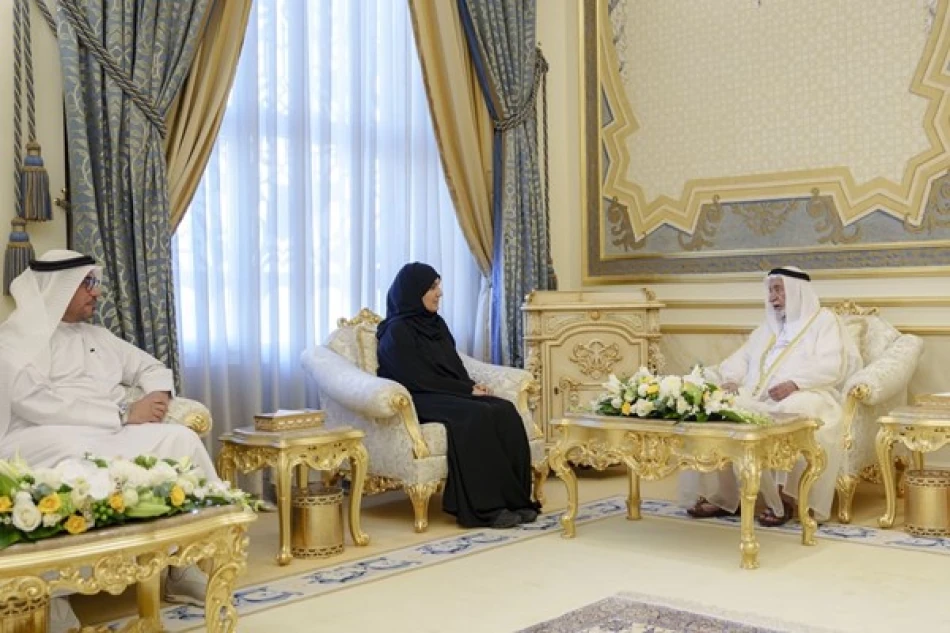
Sharjah Ruler Approves New Organizational Structure for Government-Run Nurseries
Sharjah Restructures Government Nurseries as Education Sector Expands to Serve 200,000 Students
Sheikh Dr. Sultan bin Mohammed Al Qasimi, Ruler of Sharjah, has approved a new organizational structure for the emirate's government nurseries under the Sharjah Academy for Education, signaling the emirate's commitment to strengthening early childhood education infrastructure. The move comes as Sharjah's education sector prepares to serve nearly 200,000 students across private schools and 8,000 children in nurseries for the new academic year.
Strategic Expansion Reflects Growing Educational Demand
The restructuring decision emerged during a meeting at Al Badi Palace with Dr. Muhadditha Al Hashimi, Chairperson of the Sharjah Private Education Authority and President of the Sharjah Academy for Education. The timing coincides with preparations for the new academic year, highlighting Sharjah's proactive approach to educational planning.
The emirate's educational infrastructure has reached significant scale, encompassing 128 private schools, 155 nurseries (37 government-run and 118 private), and 187 training centers. This academic year will see further expansion with four new schools, six private nurseries, and 32 additional training centers opening their doors.
Early Childhood Education Takes Center Stage
The focus on government nursery restructuring reflects a broader regional trend toward investing in early childhood education. The UAE has increasingly recognized that quality early learning programs drive long-term educational outcomes and economic competitiveness.
Infrastructure and Quality Assurance
Sheikh Sultan emphasized the importance of coordinated efforts among educational institutions to deliver quality education that preserves authentic values while incorporating global best practices. This dual approach positions Sharjah's education system to compete internationally while maintaining cultural identity.
The government's attention to nursery infrastructure suggests recognition that early childhood education requires specialized facilities and trained personnel, distinct from traditional schooling models.
Market Implications and Regional Context
Sharjah's educational expansion occurs amid growing competition among UAE emirates to attract families and businesses. Dubai and Abu Dhabi have made significant investments in international schools and universities, while Sharjah appears to be strengthening its foundation-level education infrastructure.
Investment in Human Capital
The emirate's comprehensive approach—spanning nurseries through training centers—creates an integrated educational ecosystem. This strategy mirrors successful models in Singapore and Finland, where early intervention and continuous learning pathways have produced strong educational outcomes.
For investors and education providers, Sharjah's systematic expansion signals stable policy support and growing market opportunities. The addition of 32 training centers particularly suggests focus on professional development and adult learning, addressing workforce skill requirements.
Curriculum Development and Global Standards
The meeting highlighted ongoing curriculum development efforts to align with global changes while building student capabilities and skills. This approach acknowledges that static educational content cannot prepare students for rapidly evolving job markets.
The emphasis on qualified educational staff for early childhood programs indicates understanding that teacher quality, particularly in formative years, significantly impacts long-term student success. Research consistently shows that high-quality early childhood educators generate substantial returns on educational investment.
As regional competition for educational excellence intensifies, Sharjah's methodical approach to infrastructure development and quality assurance may prove more sustainable than rapid expansion models that prioritize quantity over systematic improvement.
Most Viewed News

 Layla Al Mansoori
Layla Al Mansoori






